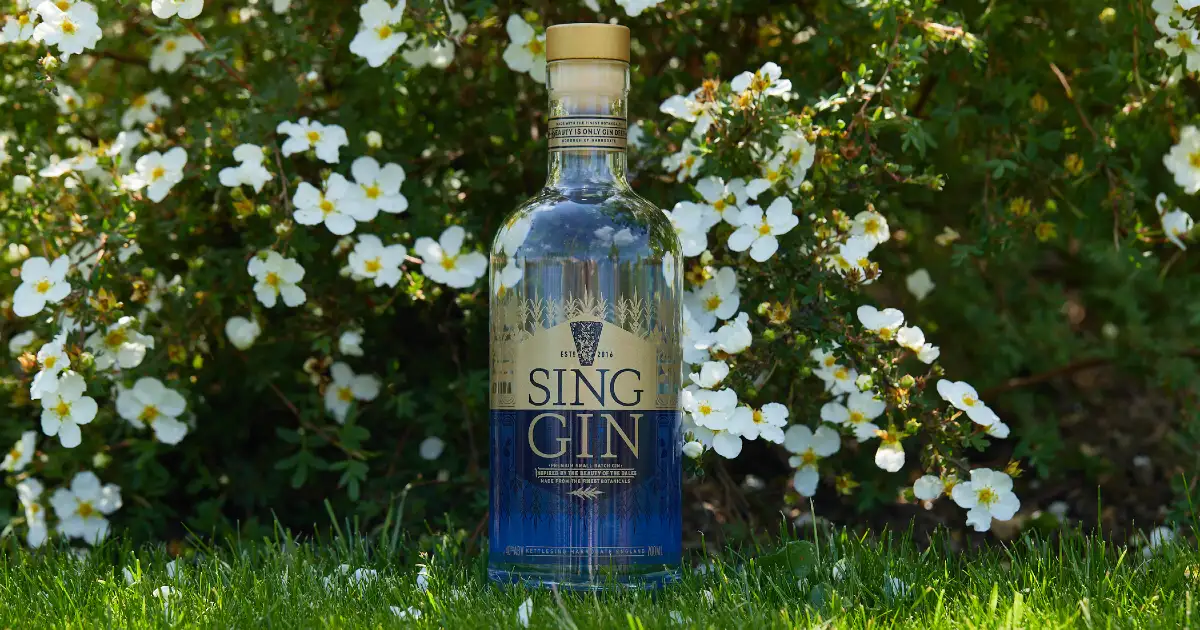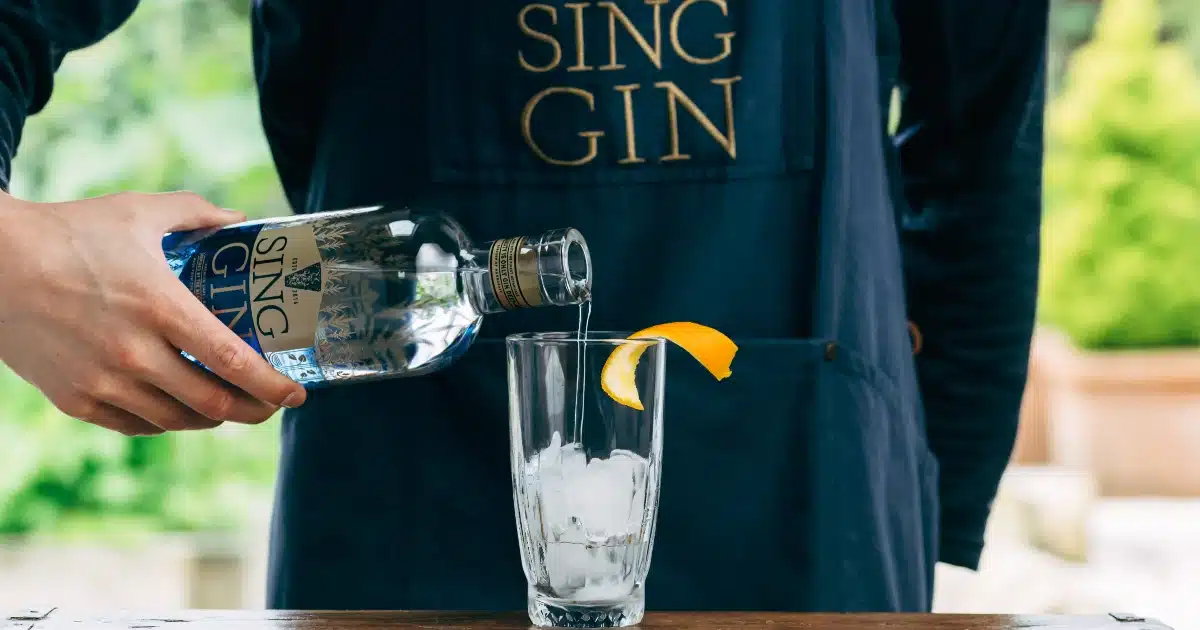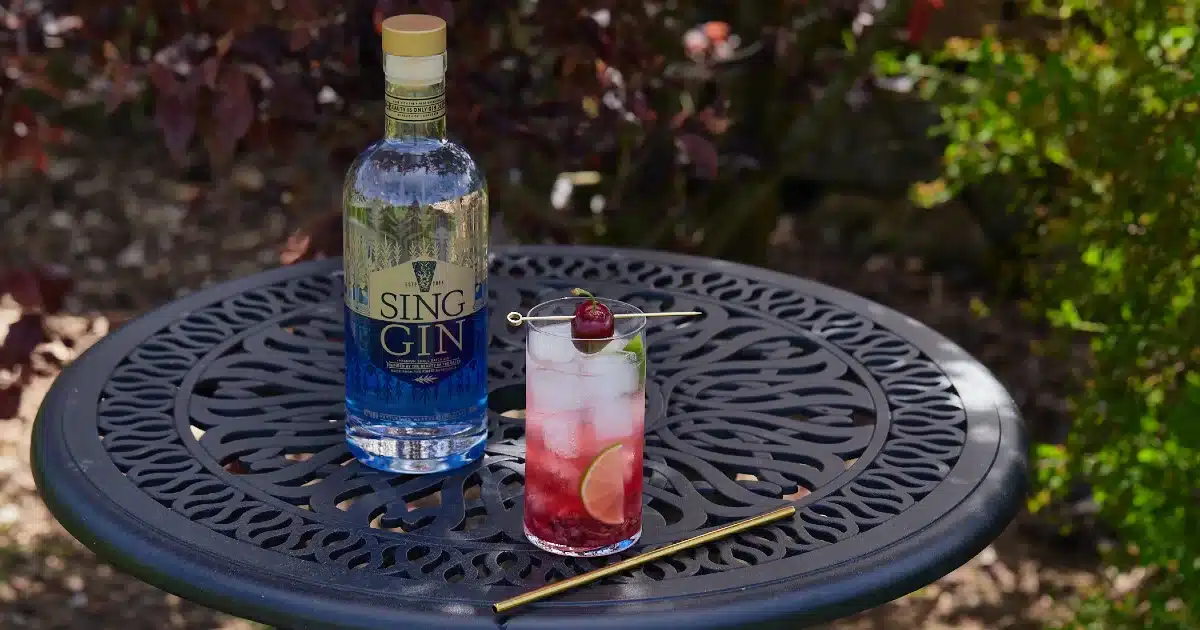VIEW OUR RANGE OF GIN HAMPERS TODAY

Whether due to intolerance, a coeliac diagnosis or other health reasons, more and more people are cutting gluten out of their diets these days. While eliminating gluten from your meals may be manageable, ensuring your alcoholic beverages are gluten free can be trickier. Which drinks are gluten free? Is gin safe for coeliacs? We’ll answer these questions here.
Who doesn’t love a gin hamper? The perfect gifts for drinkers of gin, our hampers rise to any occasion – from birthdays to anniversaries, congratulations to new homes, Christmas or just to say thank you. Discover our range of luxury gin hampers here.
Gin can be made from grapes, potatoes, molasses, distilled malt or a grain such as wheat or barley, infused with juniper berries – if it doesn’t contain juniper, it ain’t gin! Beyond that, gin makers are free to get creative with a selection of botanicals. The exact combination used impacts the gin’s flavour and aroma.
You can read more about the ingredients in gin and find out the science behind your G&T in our dedicated blog post.

Gluten is a type of protein found in food. It can be absorbed through your diet, but not through your skin.
Gluten can cause a lot of problems for people with certain dietary requirements, and in order to successfully avoid it, you need to understand where it lurks.
Gluten is found in grains like wheat, barley and rye – meaning it’s typically hiding in foods like bread, pasta, pizza bases, cereals, flour, cakes and biscuits. All the good stuff! It can also be found in processed foods such as soups, sauces and ready meals.
If you have Coeliac disease, you shouldn’t have a problem with seeds, grains, cereals and flour, including corn, polenta, potatoes, rice and soya. However, you should avoid barley, wheat, rye, couscous and semolina as they contain gluten.
If you don’t have an intolerance to gluten, you don’t need to avoid it.
Around one in every 100 people in the UK has coeliac disease, which causes your immune system to respond to gluten as if it’s a harmful substance. There are a lot of gluten-free products available in supermarkets today and many restaurants also offer gluten-free options, or mark dishes as suitable for gluten-free diets on their menus.
In the UK and EU, all spirits are gluten free due to the fact that the distillation process eradicates any gluten present in the cereal used. However, many people with a gluten intolerance claim that some spirits made from wheat make them feel nauseous after consumption. So to be safe, you should aim to steer clear from all wheat based gins if you have Celiac disease or a gluten sensitivity.
On the bright side, you can still opt for non-wheat, potato or grape based gins which are typically cleared for gluten free consumption. Sing Gin is made from grapes, so it could be a great option for you.
Of course, you also need to be wary of which mixer for gin you choose, as some mixers may contain gluten. Some gin cocktails may also contain gluten.

Cider, wine, sherry, spirits, port and liqueurs are other gluten free alcoholic drinks.
Unless specifically labelled as ‘gluten-free’, you should avoid beer, lagers, stouts and ales if you are sensitive to gluten.
Flavoured gins are usually gluten-free but it’s important you double check – some brands may add flavourings or other ingredients after distillation. There is also a risk for gluten cross-contact in facilities that process products containing wheat, barley, or rye.
If you’re looking for a gluten free gin, try one of the following:
Drinks with an ABV of more than 1.2% do not have to list all ingredients on their packaging. If they contain an allergen (including gluten containing cereals) they must clearly communicate this, for example ‘contains wheat’ or ‘contains barley’.
An exception to this is that if the name of the drink contains the name of the allergen they do not have to do this, for example ‘wheat beer’ would not have to state it contains wheat because it’s already obvious.
Share this with a friend to spread the knowledge!
To benefit from exclusive discounts and other Sing Gin club member benefits, subscribe to our newsletter and follow us on Facebook, Twitter, Instagram and Pinterest.